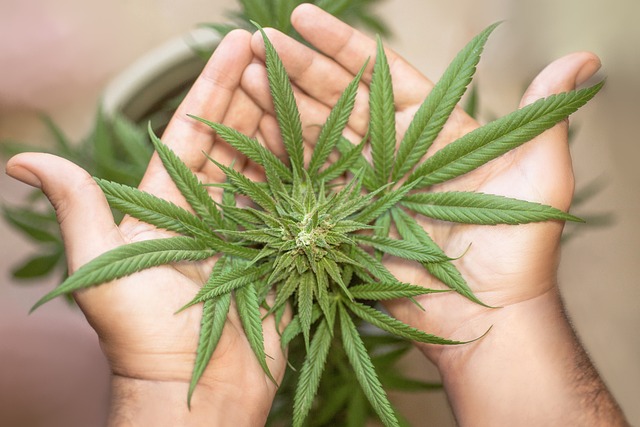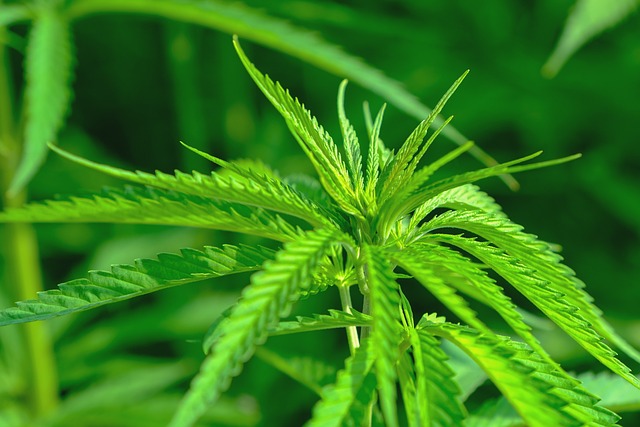New Jersey has officially made THCA (Tetrahydrocannabinolic Acid) legally permissible for medical use under its compassionate use program. This non-psychoactive cannabinoid is found in raw cannabis and must contain less than 0.3% delta-9-THC to comply with state regulations. THCA is available through authorized dispensaries with specific limitations. While the psychoactive effects of THCA are generally milder than those of THC, it's important for users to be cautious about potential side effects like dry mouth and red eyes, especially at higher doses. The state is actively engaging in legislative discussions regarding the potential legalization of recreational THCA use, with laws and regulations subject to change. Users are advised to stay updated on these developments. THCA is noted for its therapeutic benefits, including anti-inflammatory properties that may help conditions such as arthritis and chronic pain, and emerging research suggests it could have neuroprotective qualities for neurodegenerative diseases. However, due to the possibility of converting into delta-9-THC under certain conditions, consumers are urged to use THCA responsibly and consult healthcare professionals, particularly those with existing health concerns or taking other medications. As THCA's legal status and research continue to evolve, consumer education remains critical for its safe and effective use within the state's regulatory framework in New Jersey.
Exploring the nuances of cannabis compounds, this article sheds light on the emerging landscape concerning THCA (Tetrahydrocannabinolic Acid) flower legality and effects in New Jersey. With a focus on how consumers can navigate its potential benefits and risks, we delve into the latest research and regulations surrounding this cannabinoid. Understanding the legal status of THCA flower in New Jersey is paramount for residents considering its use, and our guide aims to provide clear, informative insights into what one may expect from this unique compound.
- Exploring the Legal Status and Side Effects of THCA Flower in New Jersey
- Understanding THCA Flower: Potential Benefits and Risks for Consumers in New Jersey
- Navigating the Effects of THCA Flower: A Comprehensive Guide for New Jersey Residents
Exploring the Legal Status and Side Effects of THCA Flower in New Jersey

In recent years, the legal status of cannabinoids derived from the cannabis plant has seen significant shifts across various states in the United States. New Jersey, a state at the forefront of cannabis reform, has specific regulations regarding the THCA flower, which contains tetrahydrocannabinolic acid, a non-psychoactive precursor to THC found in raw cannabis plants. As of the latest updates, THCA is legal in New Jersey for medical purposes under the state’s compassionate use program, with certain restrictions and dispensary acquisitions. Recreational use, however, remains a complex issue, subject to ongoing legislative discussions and changes. It’s crucial for consumers to stay informed about the evolving laws to ensure compliance with state regulations.
When it comes to side effects associated with THCA flower consumption, understanding the potential impacts is essential. Unlike its psychoactive counterpart, THC, THCA is often reported to have a different effect profile. Users may experience mild psychoactive effects, but the primary focus is on its therapeutic properties. Side effects can include dry mouth and eyes, dizziness, or anxiety in some individuals, particularly at higher doses. It’s also worth noting that THCA’s legal status can influence the availability and purity of products on the market, which in turn affects user experiences and reported side effects. Consumers should approach any cannabis-related product with caution, adhering to recommended dosages and seeking advice from healthcare professionals, especially if they have underlying health conditions or are taking other medications.
Understanding THCA Flower: Potential Benefits and Risks for Consumers in New Jersey

Understanding THCA flower begins with recognizing its legal status and potential effects on consumers in New Jersey. As of the latest regulations, THCA (Tetrahydrocannabinolic Acid) is considered a legal cannabinoid within the state, provided it contains less than 0.3% delta-9-THC, the psychoactive component of cannabis. THCA itself is non-psychoactive and is found in raw or unheated cannabis plants. For consumers exploring the benefits of THCA flower, potential advantages include its anti-inflammatory properties, which may be beneficial for those suffering from conditions like arthritis or chronic pain. Additionally, preliminary research suggests that THCA might have neuroprotective qualities and could potentially aid in slowing the progression of neurodegenerative diseases.
However, it is crucial for consumers to approach THCA flower with caution. While the lack of psychoactive effects may be appealing to those sensitive to or wishing to avoid the ‘high’ associated with cannabis, understanding the risks is equally important. Side effects can include mild psychoactive effects if the THCA is not pure or if it degrades into delta-9-THC. Other potential side effects include dry mouth, red eyes, and altered mood. Moreover, as with any consumption of cannabis derivatives, individuals should be aware of how THCA might interact with other medications they are taking. It is advisable for consumers to consult with a healthcare professional before incorporating THCA flower into their wellness routine, especially given the evolving legal landscape and research on its effects. In New Jersey, where THCA products are legal, consumer education remains key to ensuring safe and responsible use of these cannabinoids.
Navigating the Effects of THCA Flower: A Comprehensive Guide for New Jersey Residents

Navigating the effects of THCA flower can be a complex task for new users, especially as regulations around its use evolve. In New Jersey, where THCA flower has been legalized for medical use, understanding its implications is crucial for residents exploring this option. THCA, or Tetrahydrocannabinolic Acid, is the raw form of THC found in cannabis plants and is known for its potential therapeutic benefits. As a precursor to THC, THCA does not produce psychoactive effects until it is decarboxylated through heating, such as during smoking or vaping. This distinction is significant for patients and consumers who are sensitive to the psychoactive properties of cannabis.
For New Jersey residents considering THCA flower for medical purposes, it’s important to first consult with a healthcare provider. The state’s regulatory framework governs the purchase, possession, and use of THCA flower, ensuring it is dispensed through licensed establishments. Potential side effects include dry mouth, red eyes, and potential psychoactive effects if the THCA is decarboxylated, which can vary in intensity depending on the dose and individual physiology. Additionally, while THCA is non-psychoactive in its raw state, it’s still a cannabinoid that interacts with the body’s endocannabinoid system, and thus, users should be aware of how it may affect them before incorporating it into their wellness regimen. Understanding the nuances of THCA flower, particularly its legal status in New Jersey, is essential for safe and informed usage. Residents are encouraged to stay updated on local laws and medical advice as both can change over time.
In conclusion, the emergence of THCA flower as a subject of interest among consumers in New Jersey has prompted a thorough examination of its legal status and associated side effects. This exploration has underscored the nuanced nature of THCA’s impact on health and well-being, highlighting both potential benefits and risks that consumers should be aware of. As THCA continues to gain traction within the state’s regulatory framework—thanks to its legalization in New Jersey—a balanced understanding of its effects becomes increasingly crucial for informed decision-making. Residents interested in exploring the properties of THCA flower are encouraged to approach it with caution and due diligence, considering both the scientific evidence and personal health considerations. With a growing body of research dedicated to elucidating THCA’s effects, consumers can navigate this landscape with greater confidence and clarity.
